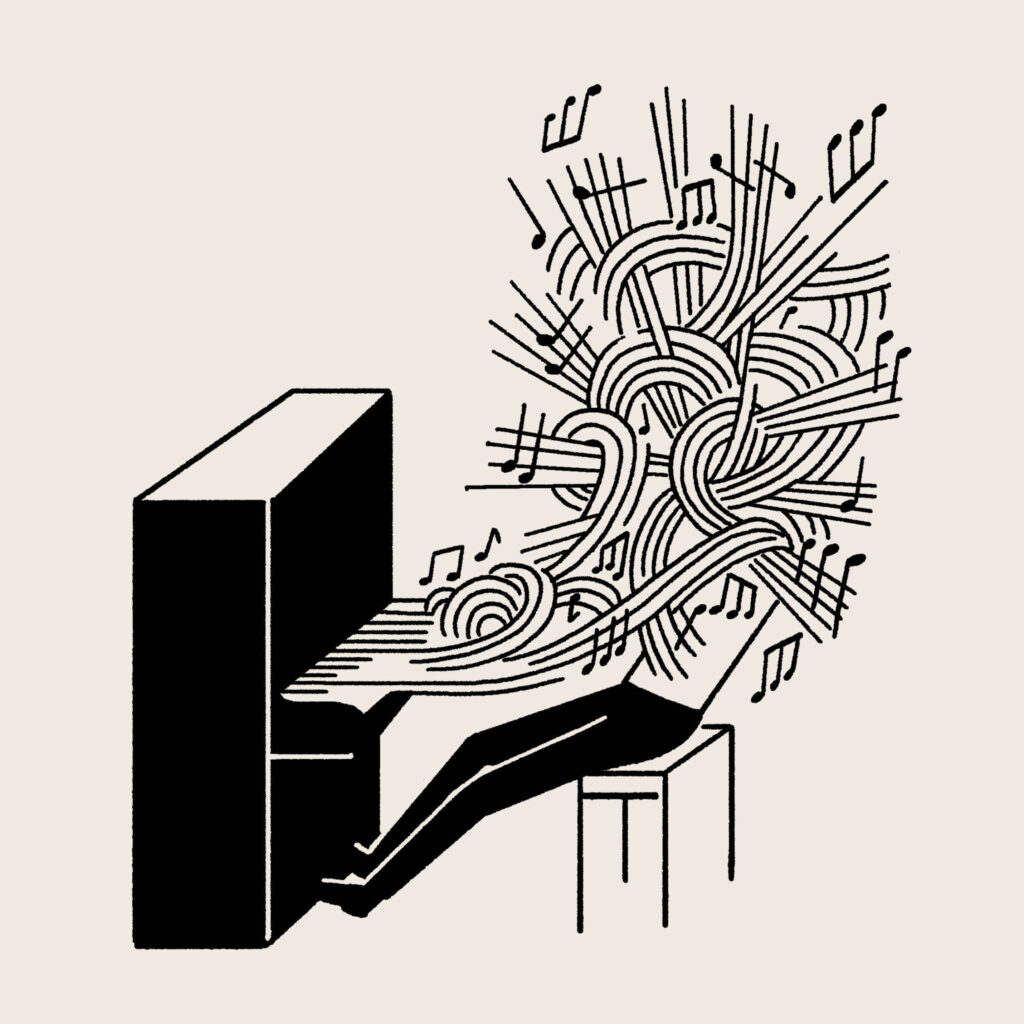When Christoph Niemann published this piece about learning to play the piano during the most-lockdown-y parts of the Coronavirus lockdown, it rang a chord with me (hah!). I, too, have experimented with learning to play the piano this spring/summer, and found a similar kind of Zen-like focussed calm emerge out of the frustration of staring at a piece of sheet music and wondering why I couldn’t for the life of me get me fingers to remember to do when they got to that point.
I started out with – after following some random links off the back of finishing the last bit of work for my recent masters degree – a free course in music theory by the OU, because I figured that coming in from a theoretical perspective would help with the way my brain thinks about this kind of thing. I supplemented that with a book we got for the kids to use to learn to play, and now I’ve now graduated to very gradually hunt-and-pecking my way through Disney’s back catalogue. I can play Go The Distance, Colors of the Wind and most of Can You Feel The Love Tonight barely well enough that I don’t feel the need to tear my own ears off, so I guess I’m making progress, though I still fall over my own hands every time I try to play any bloody thing from Moana. 20 minutes at a time, here and there, and I’m getting there. I don’t expect to ever be good at it, but I’m enjoying it nonetheless.
But anyway: this piece in the NYT Magazine really spoke to me, and to hear that somebody with far more music experience than me can struggle with all the same things I do when getting started with the piano was really reassuring.
